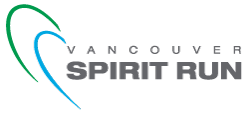Each day, our goal should be to find the right balance between food intake and physical performance. The key is to burn 600 calories every day through exercise. Here are some key points for achieving peak performance.
Avoid fast foods: They definitely are not “fuel foods” for optimum performance. Why? If you indulge in a Big Mac, french fries and a large milkshake, you would consume 2,200 calories. You would then have to run almost a marathon — 22 miles or 35 kilometres. Running a mile burns about 100 calories. Intelligent food choices are just as important as exercise to stay healthy.
“Under-size” me: Portions of meat, poultry and fish should be the size of the palm of your hand. Fruits and vegetables should be the marquee attraction, with daily servings of five to eight 1/2-cups (125 mL). The meat portion should be the “condiment.” Hungry? Think fruit: Reach for a piece of fruit as a snack. Go for healthy carbs such as strawberries or a banana.
Think fresh. Buy fresh. Eat fresh: Stock up on locally grown fruits and vegetables in season.
For dairy, eat low-fat yogurt, cottage cheese, skim milk and lower-fat cheeses such as Italian parmesan, bocconcini, Spanish manchego, Greek feta and chevre.
Pure fruit and vegetable juices contribute to your daily intake of five to eight fruits and vegetables. But remember that they add to your total caloric intake. Dilute fruit juice with water.
Go nuts: Roasted nuts and peanut butter are, mmmmm, good. A little goes a long way: 2 tablespoons — or 30 mL — provides nearly 300 calories.
Chocolate, chocolate, chocolate: Indulge in a nibble a day of dark chocolate (a 30-calorie bite, or 1/4 oz., 6.8 grams).
Red wine: A perfect complement to any meal. Women should keep their alcohol intake to one glass a day.
Coffee: Enjoy, but limit your intake to one to two cups daily. We have a cup of coffee before a run for an extra jolt.
What to eat the night before and the morning before the Whistler Spirit Run: In the ’50s, when my husband Doug and I competed, athletes were told to eat steak, in the belief that it would provide energy. Wrong! Pasta is now the “fuel food” to eat the night before. The evening before, don’t eat anything that is new to your taste buds. Eat normal portions, possibly a little pasta, salad, bread, but no alcohol. Drink water.
The morning of the run, most prefer just a cup of coffee, or a half a bagel or toast with peanut butter. Don’t forget to stop at the water stations during the run to avoid dehydration.
Try a Wake-up Jumpstart Smoothie: This is our morning “jumpstart” on the day of the run: 1 cup (250mL) orange juice 1/2 cup (125mL) peeled and sliced mangoes or peaches (or combination), fresh or frozen 1/2 ripe banana, peeled, in chunks 2 Tbsp (30 mL) low-fat vanilla or tropical yogurt 1 Tbsp (12mL) wheat germ (optional) 3 or 4 ice cubes (if using fresh, not frozen fruit) Toss everything into the jar of a blender. If using fresh fruit, add the ice cubes. Blend well. Enjoy! Special to The Sun Diane Clement is an Olympian sprinter (1956 Games), a bronze medallist at the 1958 Commonwealth Games, the author of eight best-selling cookbooks and last but certainly not least, a co-founder of the Vancouver Sun Run.
